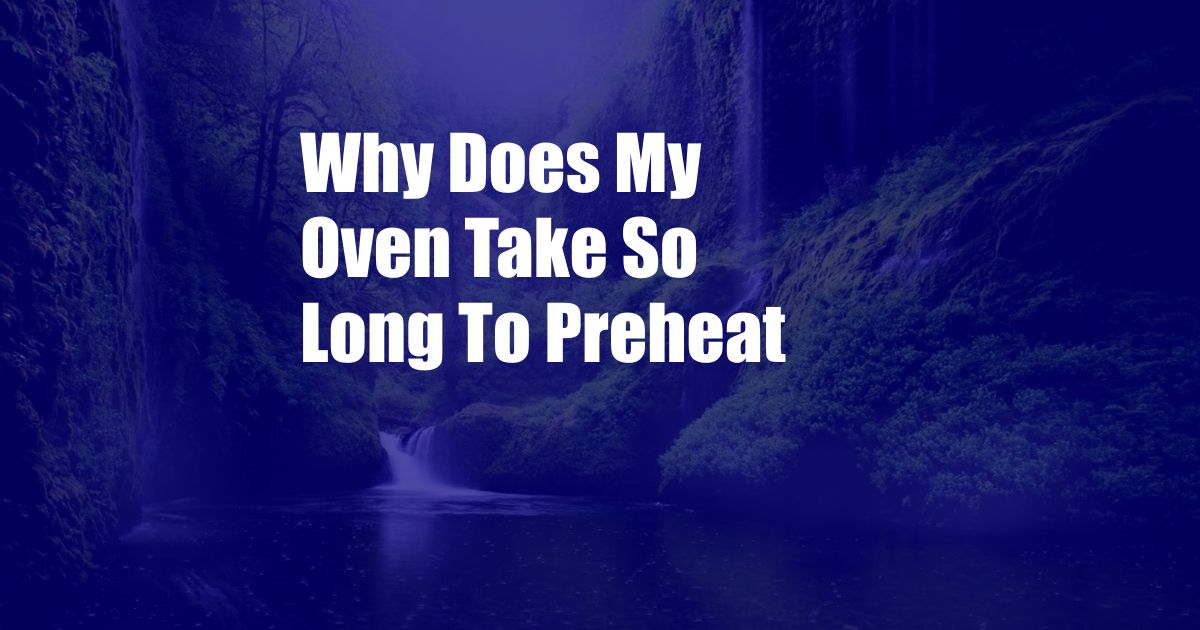
Why Does My Oven Take So Long to Preheat?
Have you ever found yourself standing in front of your oven, impatiently waiting for it to preheat? You’re not alone. Many home cooks have experienced the frustration of a slow-preheating oven. While there are several reasons why your oven may be taking its sweet time, there are also some simple solutions you can try to speed up the process.
In this blog post, we will explore the reasons why ovens take so long to preheat and provide some tips and expert advice on how to make your oven preheat faster. We will also answer some frequently asked questions about oven preheating.
Understanding Oven Preheating
Before we dive into the reasons why your oven may be taking so long to preheat, let’s take a moment to understand what happens during the preheating process.
When you turn on your oven, the heating element (either gas or electric) starts to heat up. The heat from the heating element is then transferred to the air inside the oven, which in turn heats up the oven’s interior. The preheating process is complete when the oven reaches the desired temperature.
Reasons Why Ovens Take So Long to Preheat
There are several factors that can affect how long it takes for an oven to preheat. These factors include:
- Oven size: Larger ovens take longer to preheat than smaller ovens.
- Oven type: Gas ovens typically preheat faster than electric ovens.
- Heating element: Ovens with more powerful heating elements preheat faster.
- Oven insulation: Ovens with better insulation will retain heat better, which can speed up the preheating process.
- Oven placement: Ovens that are located in a drafty area may take longer to preheat.
Tips and Expert Advice for Faster Oven Preheating
If you’re looking to speed up the preheating process, there are a few things you can do:
- Use the convection setting: If your oven has a convection setting, use it. Convection ovens circulate hot air around the oven, which can speed up the preheating process.
- Preheat your oven to a higher temperature: This may seem counterintuitive, but preheating your oven to a higher temperature can actually help it preheat faster. The oven will reach the desired temperature more quickly, and the higher temperature will help to distribute the heat more evenly.
- Close the oven door: It may seem obvious, but it’s important to keep the oven door closed during the preheating process. Opening the door allows heat to escape, which will slow down the preheating process.
- Clean your oven: A dirty oven can take longer to preheat. Food residue and grease can build up on the heating element and oven walls, which can reduce the oven’s efficiency.
FAQ on Oven Preheating
Q: Why is it important to preheat my oven?
A: Preheating your oven ensures that your food cooks evenly and thoroughly. It also helps to prevent your food from sticking to the pan.
Q: How can I tell if my oven is preheated?
A: Most ovens have a light that will turn on when the oven reaches the desired temperature.
Q: Can I use my oven without preheating it?
A: It is not advisable to use your oven without preheating it. Food cooked in a preheated oven will cook more evenly and thoroughly.
Q: How long should I preheat my oven for?
A: The preheating time will vary depending on the size of your oven and the temperature you are preheating it to. However, most ovens will take between 10 and 15 minutes to preheat.
Conclusion
If you’re tired of waiting for your oven to preheat, there are a few things you can do to speed up the process. By following the tips and advice in this blog post, you can get your oven preheated in no time.
Are you interested in learning more about oven preheating or other cooking tips? Be sure to check out our other blog posts for more helpful information.